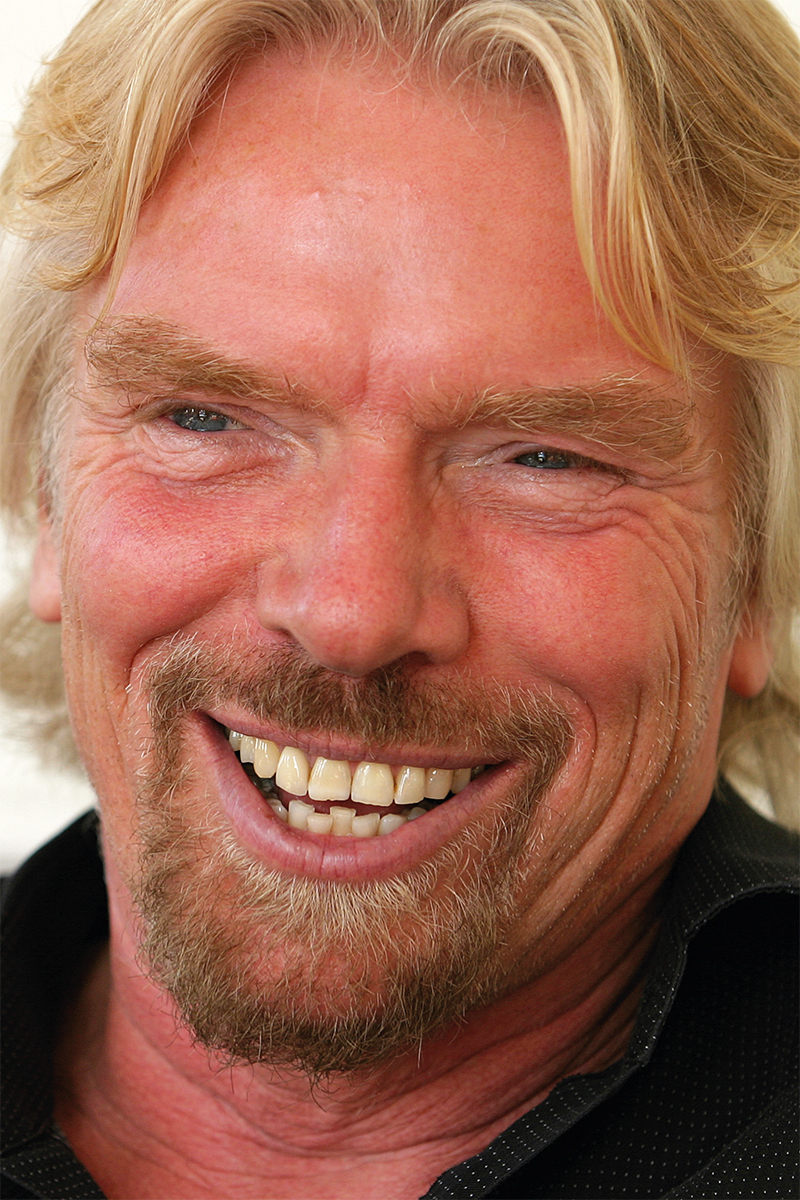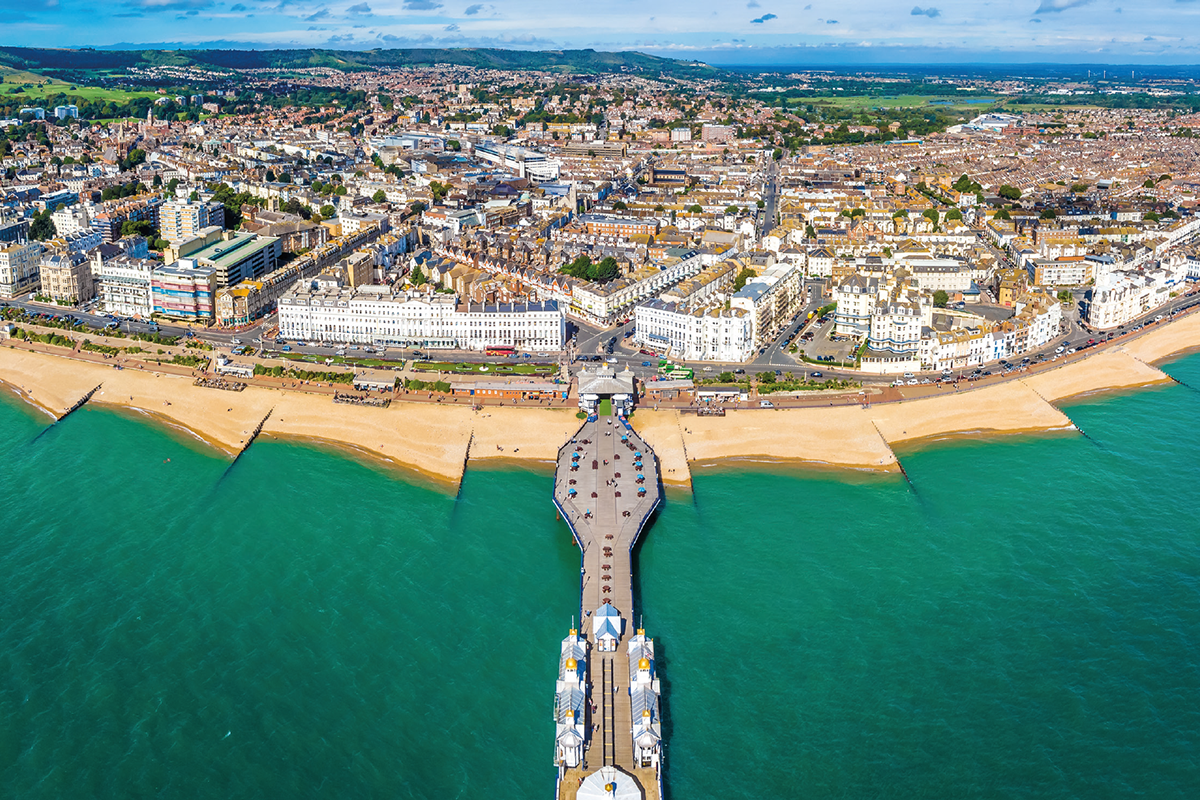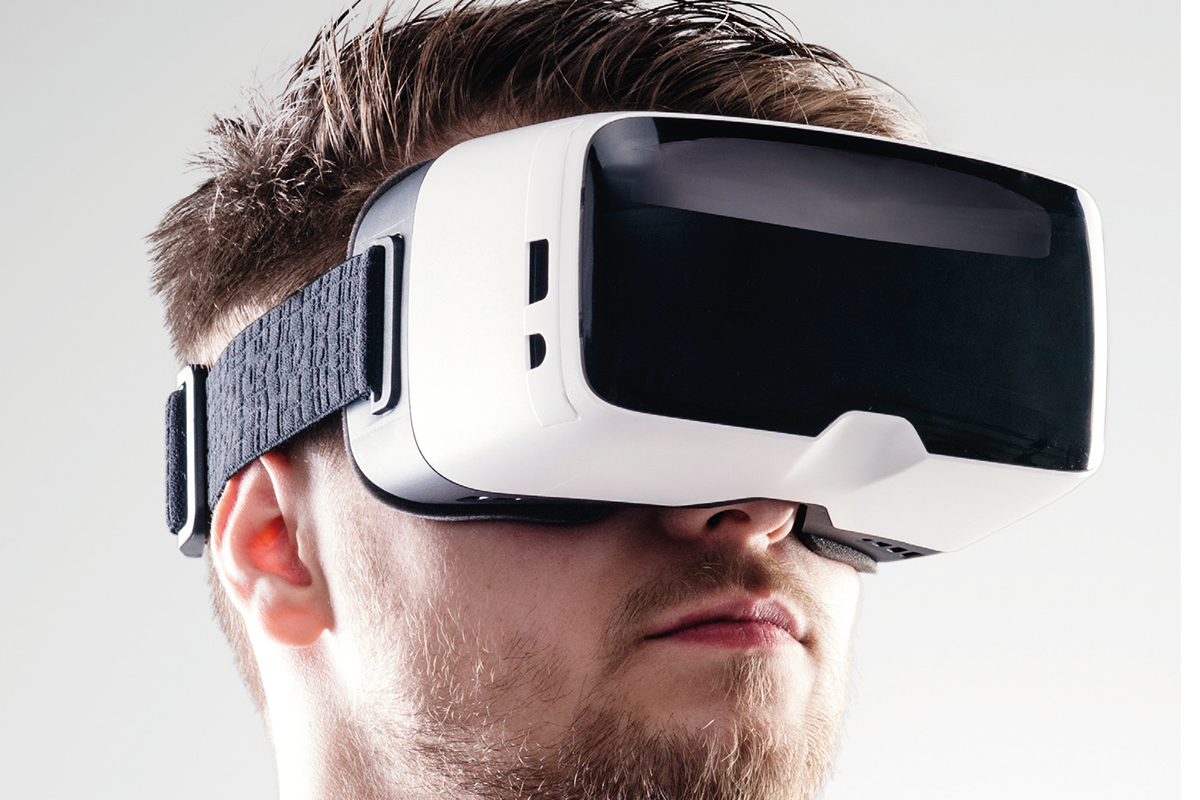
Sir Richard Branson is one of those self-made entrepreneurs from a very well-to-do background whose omnipresence is such that there’s a good chance you cannot recall seeing him on the television for the first time.
However, underneath all of the evident, external, charismatic charm, academia and mental health wellbeing haven’t always been his best life journey companions. By Alan Wares
If you didn’t know better, one might be convinced he’d enrolled at drama school; he has undertaken so many
TV and film roles, almost exclusively playing himself, such is his omni-presence.
Sir Richard Charles Nicholas Branson was born in Blackheath, London on July 18th 1950. His father was an eminent barrister, his mother a former ballet dancer, air steward and entrepreneur. He comes from a long line – on his father’s side – of well-regarded, senior people who have operated within the UK judiciary system.
Early days
His first entrepreneurial venture was at the age of 16, founding the magazine ‘Student’ in 1966 with his friend Nik Powell. During the magazine’s lifetime, he interviewed the likes of Mick Jagger and eminent psychiatrist RD Laing.
Branson opened his first record shop in Oxford Street, London in 1971. In 1972, using money earned from his record store, Branson launched the record label Virgin Records with Powell. The name ‘Virgin’ was suggested by one of Branson’s early employees because they were all new at business.
One of the first shops opened after the Oxford Street store was in Queens Road, Brighton, and it stayed open in that location until the early 1980s before moving to Western Road.
Meanwhile, Branson had bought a country estate near Oxford – always nice to get that family leg-up – in which he installed a recording studio. He leased studio time to hitherto unknown artists, where his first, and still one of his greatest, success was the multi-Platinum selling Tubular Bells by Mike Oldfield (1973).
By 1979, Branson, still not a major player in the music industry, and very much considered an ‘independent’, was considered to be worth £5 million (about £28 million today). It was around this time he made his first foray into travel and holidays.
Virgin empire and beyond
He eventually formed Virgin Atlantic – an airline – in 1984, and Virgin holidays a year later. In 1992, he sold Virgin Records, his first successful company, to EMI for an estimated £500 million (about £1.15bn today).
In the intervening 30 years, Branson has rarely looked back as a successful ‘captain of industry’, as his fortune has grown to an estimated personal wealth of £3 billion. His acts of self-promotion are legendary, and his world record attempts as barking as they are varied. The media could often rely on Branson for good copy.
He was knighted in 2000 for ‘services to entrepreneurship’.
That said, there have been a few instances of Branson not getting it quite right. Virgin Cola, Virgin Cars, Virgin Publishing, Virgin Clothing and Virgin Brides have been launched and summarily closed without pricking the public conscience too hard.
“I suppose the secret to bouncing back is not only to be unafraid of failures but to use them as motivational and learning tools... There’s nothing wrong with making mistakes as long as you don’t make the same ones over and over again,” he was quoted as saying when it comes to his attitude to business failure.
Like most billionaires who make no secret of their billionaire status, Branson is a heady concoction of juxtaposed ideals. On one hand, he will stand on a platform of saving the planet, while at the same time being an exponent of some of its ills.
His support for global humanitarian, environmental and technological improvements are well recorded, although this is somewhat counter-pointed by his involvement for nearly 40 years in airline ownership both in the UK and abroad. Similarly, he champions the UK economy while he himself living as a tax exile.
However, in the field of academia and mental wellbeing, Branson offers up a strong level of consistency. And as one of those noted billionaires who make a point of letting people know they are billionaires, they are not alone in this regard.
Championing neurodiversity
Branson is a champion of neurodiversity, coping with dyslexia, and openly talking of his ADHD diagnosis. He performed poorly academically, and on his last day at school, his headmaster told him he would either “end up in prison or become a millionaire.”
Writing about it in April 2021, he said, “Many businesses have caught on to the benefits of inclusion, but there are still lots of opportunities for thinking bigger and embracing different ways of thinking. I’ve always believed a great business is one that values new perspectives, different ideas and broader ways of thinking.
“The world needs a neurodiverse workforce to help try and solve some of the big problems of our time. Many people on the autism spectrum excel in areas such as logic, technology skills, problem-solving, pattern recognition, precision, sustained concentration, analysis and other unique cognitive functions.
“Yet people on the autism spectrum are often overlooked for jobs that they might be brilliant at. It’s a staggering statistic that 85% of autistic adults are unemployed or under-employed.”
ADHD
ADHD is an acronym for Attention Deficit Hyperactivity Disorder, a cognitive difference, resulting in hyperactivity, impulsivity, inattentiveness, and poor executive functioning.
It is not a medical condition or a disorder, but a dysregulation of the biological functioning of the brain. The human brain is a complex communication network, whereby messages are relayed between neurons. In order for messages to be relayed, the brain requires two key neurotransmitters – also known as chemical messengers – they are called dopamine and noradrenaline.
In an ‘ADHD brain’, there is an irregulation of these neurotransmitters resulting in a variety of symptoms, both positive and negative, that can impact on education, work, and relationships.
The symptoms of ADHD usually fit into three general categories: hyperactivity, impulsivity, and executive functioning.
Symptoms of hyperactivity include
• Difficulty sitting in a chair
• Poor sense of danger
• Fidgeting
• Excessive talking
• Excessive physical movement
Symptoms of impulsivity
• Interrupting conversations
• Problems with self-control
• Aggression
• Overreacting to criticism and disappointments
Symptoms of difficulty with executive functioning
• Disorganisation
• Forgetfulness
• Chaotic work/home environment
• Poor planning
• Poor prioritising
Dyslexia
On the subject of dyslexia, and how he has managed to cope, survive and thrive with this social and academic albatross, in 2018, Sir Richard wrote a letter to his younger self, encouraging him through his tough times.
To that end, Branson’s Virgin empire supports ‘auticon’, an IT and technology services firm that employs autistic people as technology consultants for businesses all around the world. It also provides support for Made By Dyslexia, and charity dedicated to changing the stigma around dyslexia.
Given the range of superpowers neurodiversity can offer, it may be time for the rest of the business world to wake up and take notice, rather than have it prejudicially rubbished by an uncaring society.
Why are there so many successful people with ADHD?
It is known that people with ADHD have specific strengths, as a result of their brain functioning difference. They are more spontaneous, creative, energetic, intuitive, imaginative, and inventive. They also have the ability to hyperfocus on subjects that interest them to a far greater extent than their non-ADHD counterparts.
They can be outside-of-the-box thinkers and often produce the most original and creative ideas, and their superior energy means that they can achieve more and work harder and faster than others. Impulsiveness and spontaneity are closely related and many people with ADHD succeed in redirecting impulsivity and turning it into spontaneity, which can be utilised positively in every area of life.
People with ADHD need to work in professions that allow them to direct their need for physical activity, creativity, imagination, or sense of innovation into a profession in which they can utilise it positively and in which it will stand as an asset.
Given the explanation above, even by the most conservative of yardsticks, Branson’s sense of entrepreneurialism and subsequent can easily fall under the auspices of ADHD behaviour.





